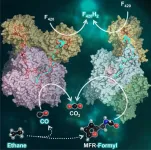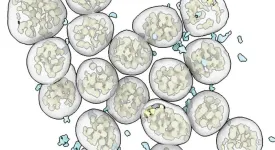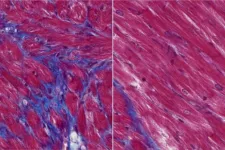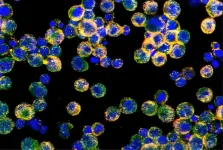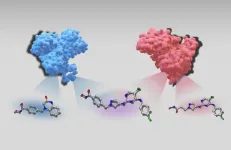(Press-News.org) Wealth is one of the strongest indicators of social status, acting as a key indicator of social inequality and influencing access to education, health care and professional success. In a study, researchers from the Max Planck Institute for Demographic Research, the University of Cologne, GESIS and the Norwegian Institute of Public Health examined how financial wealth changes related to various generational transitions within families. The study used data from Norwegian registries and focused on people born in 1953.
Investigating changes in wealth within the family
The researchers examined how people's wealth fluctuated in relation to experiencing certain family events and the timing of these events, including the death of parents, becoming a parent or grandparent, or remaining childless. “The aim of the study was to describe how the interplay of different intergenerational family events are associated with a person's lifetime wealth accumulation,” explains Bettina Hünteler of the MPIDR.
The timing of different family events is crucial
The results of the study show that people who lose their parents late in life (at age 60, on average), become parents late (at age 28) and become grandparents late (at age 60) accumulate the most wealth. Childless individuals start at the bottom of the ranking (measured from the age of 40), but in the long run, they overtake those who became parents (at 23 age) and grandparents (at age 50) early, especially if those without children experience the death of their parents later in life. Early parenthood and grandparenthood are the only patterns in which wealth declines in the long term compared to the other family patterns. In addition, losing their second parent later in life (from the mid-50s onwards), is associated with relatively more wealth, regardless of whether and when people become parents or grandparents.
Predicted Wealth Percentile Ranks Across Age by Family Cluster, After Accounting for Gender and Education (95% Confidence Intervals) Note: N = 47,945; † Mean age at death of second parent; * Mean age at birth of first grandchild. © MPIDR
Considering the family structure as a whole, families with four living generations fare the worst related to wealth. They experience the relatively smallest increases in wealth or even decreases in wealth compared to other generational structures. In contrast, childless individuals, particularly those with a late death of the parents, see the comparatively largest wealth increase. The highest and most stable wealth position over the entire observation period is found in three-generation families with late family transitions.
Bettina Hünteler and colleagues conclude “that a person's financial well-being depends on the interaction of several family events. Moreover, individual wealth is linked to the broader family context which means that wealth is tied to the number of living relatives and how it is distributed within the family and between generations.”
END
Family as a wealth factor
Study reveals how generational change and family events are associated with a person's wealth
2024-10-23
ELSE PRESS RELEASES FROM THIS DATE:
Breathing deep: A metabolic secret of ethane-consuming archaea unraveled
2024-10-23
Seeps on the deep seafloor naturally emit alkanes, which are pollutants that are potentially dangerous to life and act on global warming. Fortunately, the sediments around the seeps host microbes that act as a biological filter: They consume most of the alkanes before their release into the oceans and our atmosphere. This so-called anaerobic oxidation of alkanes is an important yet poorly understood microbial process. Scientists from the Max Planck Institute for Marine Microbiology in Bremen, Germany, now ...
NIH clinical trial will test precision medicine treatments for myeloid cancers
2024-10-23
The National Institutes of Health (NIH) has launched a proof-of-concept precision medicine clinical trial to test new treatment combinations targeting specific genetic changes in the cancer cells of people with acute myeloid leukemia (AML) and myelodysplastic syndromes (MDS). The trial, funded by NIH’s National Cancer Institute (NCI), aims to accelerate the discovery of more tailored treatments for these aggressive cancers of the blood and bone marrow.
“AML and MDS are a heterogeneous group of cancers that can progress very quickly. Treatment advances depend in part on the ability to rapidly identify which subtype of cancer each patient has so that treatments can be tested for ...
Novel antibody platform tackles viral mutations
2024-10-23
New York, NY, October 23, 2024 — Scientists at the Icahn School of Medicine at Mount Sinai, in collaboration with colleagues in the field, have developed an innovative antibody platform aimed at tackling one of the greatest challenges in treating rapidly evolving viruses like SARS-CoV-2: their ability to mutate and evade existing vaccines and therapies.
Their findings, including preclinical studies in mice, introduce the Adaptive Multi-Epitope Targeting and Avidity-Enhanced (AMETA) Nanobody Platform, a new antibody approach for addressing how viruses like SARS-CoV-2, which causes COVID-19, evolve to evade vaccines and treatments. Details on the results were published October 23 ...
myeloMATCH precision medicine trials in myeloid leukemias open to patient enrollment across US and Canada
2024-10-23
Four leading cancer research organizations in the United States and Canada announce the opening of patient enrollment to myeloMATCH, a unique portfolio of clinical trials to test precision medicine treatments for adults with acute myeloid leukemia (AML) or myelodysplastic syndrome (MDS).
The Alliance for Clinical Trials in Oncology, Canadian Cancer Trials Group, ECOG-ACRIN Cancer Research Group, and SWOG Cancer Research Network are collaborating within the National Cancer Institute (NCI) National Clinical Trials Network (NCTN) to design and lead the trials. They expect to open ...
Social determinants of health and US health care expenditures by insurer
2024-10-23
About The Study: In this cross-sectional study of 14,000 insured adults, individual-level social determinants of health were significantly associated with U.S. health care expenditures by Medicare, Medicaid, and private insurers. These findings may inform health insurers and policymakers to incorporate social determinants of health in their decision-making practices to identify and control health care expenditures, advancing health equity.
Corresponding Author: To contact the corresponding author, Giridhar Mohan, MPH, email gmohan1@jhu.edu.
To access the embargoed study: Visit our For The Media website at this link https://media.jamanetwork.com/
(doi:10.1001/jamanetworkopen.2024.40467)
Editor’s ...
Traumatic and adverse childhood experiences and developmental differences in psychiatric risk
2024-10-23
About The Study: In this cohort study, distinct forms of traumatic and adverse childhood experiences differentially moderated developmental changes in psychiatric risk and cognitive ability in different ways, offering the possibility for precision-based prediction of risk for youth. Such findings could be used in targeted early prevention and intervention strategies for at-risk youth.
Corresponding Author: To contact the corresponding author, Justin D. Russell, PhD, email jdrussell3@wisc.edu
To access the embargoed study: Visit our For The Media website at this link https://media.jamanetwork.com/
(10.1001/jamapsychiatry.2024.3231)
Editor’s ...
Immunotherapy blocks scarring, improves heart function in mice with heart failure
2024-10-23
A new study from Washington University School of Medicine in St. Louis suggests that a type of immunotherapy — similar to that approved by the Food and Drug Administration (FDA) to treat inflammatory conditions such as arthritis — also may be an effective treatment strategy for heart failure.
The study is published Oct. 23 in the journal Nature.
After a heart attack, viral infection or other injury to the heart, scar tissue often forms in the heart muscle, where it interferes with the heart’s normal contractions and plays a leading role in heart failure, the progressive loss of the heart’s ...
Discovery finds how ovarian cancer disables immune cells
2024-10-23
Weill Cornell Medicine researchers have discovered a mechanism that ovarian tumors use to cripple immune cells and impede their attack—blocking the energy supply T cells depend on. The work, published Oct. 23 in Nature, points toward a promising new immunotherapy approach for ovarian cancer, which is notoriously aggressive and hard to treat.
A significant obstacle in treating ovarian cancer is the tumor microenvironment—the complex ecosystem of cells, molecules and blood vessels that shields cancer cells from the immune system. Within this hostile environment, T cells lose their ability to take up the lipid (fat) molecules, which are necessary for energy to mount ...
Physicists discover first “black hole triple”
2024-10-23
Many black holes detected to date appear to be part of a pair. These binary systems comprise a black hole and a secondary object — such as a star, a much denser neutron star, or another black hole — that spiral around each other, drawn together by the black hole’s gravity to form a tight orbital pair.
Now a surprising discovery is expanding the picture of black holes, the objects they can host, and the way they form.
In a study appearing in Nature, physicists at MIT and Caltech report that they have observed a “black hole triple” for the first time. The new system holds a central black hole in the act of consuming a small star ...
A “chemical ChatGPT” for new medications
2024-10-23
Researchers from the University of Bonn have trained an AI process to predict potential active ingredients with special properties. Therefore, they derived a chemical language model – a kind of ChatGPT for molecules. Following a training phase, the AI was able to exactly reproduce the chemical structures of compounds with known dual-target activity that may be particularly effective medications. The study has now been published in Cell Reports Physical Science. Do not publish before Wednesday, October 23rd, 5:00 pm CEST!
Anyone ...
LAST 30 PRESS RELEASES:
Breaking the efficiency barrier: Researchers propose multi-stage solar system to harness the full spectrum
A new name, a new beginning: Building a green energy future together
From algorithms to atoms: How artificial intelligence is accelerating the discovery of next-generation energy materials
Loneliness linked to fear of embarrassment: teen research
New MOH–NUS Fellowship launched to strengthen everyday ethics in Singapore’s healthcare sector
Sungkyunkwan University researchers develop next-generation transparent electrode without rare metal indium
What's going on inside quantum computers?: New method simplifies process tomography
This ancient plant-eater had a twisted jaw and sideways-facing teeth
Jackdaw chicks listen to adults to learn about predators
Toxic algal bloom has taken a heavy toll on mental health
Beyond silicon: SKKU team presents Indium Selenide roadmap for ultra-low-power AI and quantum computing
Sugar comforts newborn babies during painful procedures
Pollen exposure linked to poorer exam results taken at the end of secondary school
7 hours 18 mins may be optimal sleep length for avoiding type 2 diabetes precursor
Around 6 deaths a year linked to clubbing in the UK
Children’s development set back years by Covid lockdowns, study reveals
Four decades of data give unique insight into the Sun’s inner life
Urban trees can absorb more CO₂ than cars emit during summer
Fund for Science and Technology awards $15 million to Scripps Oceanography
New NIH grant advances Lupus protein research
New farm-scale biochar system could cut agricultural emissions by 75 percent while removing carbon from the atmosphere
From herbal waste to high performance clean water material: Turning traditional medicine residues into powerful biochar
New sulfur-iron biochar shows powerful ability to lock up arsenic and cadmium in contaminated soils
AI-driven chart review accurately identifies potential rare disease trial participants in new study
Paleontologist Stephen Chester and colleagues reveal new clues about early primate evolution
UF research finds a gentler way to treat aggressive gum disease
Strong alcohol policy could reduce cancer in Canada
Air pollution from wildfires linked to higher rate of stroke
Tiny flows, big insights: microfluidics system boosts super-resolution microscopy
Pennington Biomedical researcher publishes editorial in leading American Heart Association journal
[Press-News.org] Family as a wealth factorStudy reveals how generational change and family events are associated with a person's wealth
